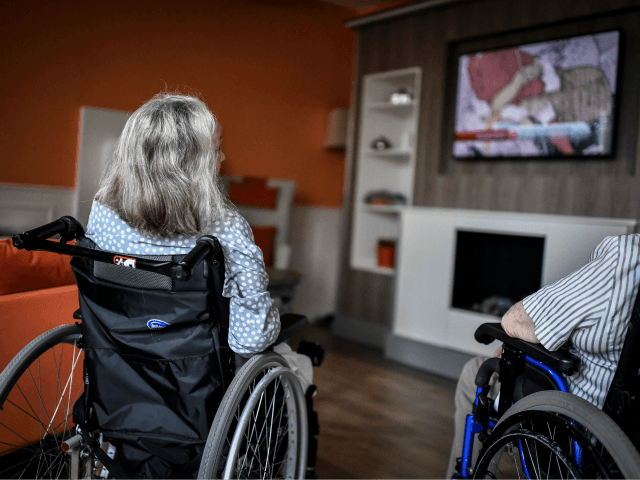The BBC will send “outreach” officers to over-75s to remind them that they will now have to pay to watch television, after it scrapped free licences for senior citizens.
From June 2020, only elderly people on a pension credit — a welfare benefit for poorer seniors — will be exempt from paying the BBC licence fee.
The BBC claims that it can no longer offer a free service to over-75s, after the government handed responsibility for the cost to the publicly-funded broadcaster, following a charter agreement made in 2015.
In the United Kingdom, if you watch programmes live or download or watch BBC material on iPlayer — whether on television, computer, or other devices — and have not paid the £154.50 licence, you are breaking the law and could be fined up to £1,000 for illegally watching TV.
TV licencing authorities employ “detection vans” which can “detect the use of TV receiving equipment at specifically targeted addresses within minutes”, and if you say you do not need a licence — for example, if you do not have a television — they may deploy “enforcement officers” to “confirm” whether you need to pay the tax or not.
Asked whether these same enforcement officers would “use the same methods” to pursue elderly TV tax “evaders”, the BBC’s director of policy Clare Sumner told the House of Commons Digital, Culture, Media and Sport Committee on Wednesday that it would be done “as sympathetically as possible” to help the elderly “understand” that they must now pay the BBC licence fee.
“We are recruiting specific people who will pay ‘support visits’ to this group with the intention of helping them understand how to apply. Now, that will be a different cohort of people to, I think, what’s called ‘inquiry officers’ who are the ones who enforce the licence fee,” Ms Sumner said.
Brexit MEP for Breitbart: Is the BBC Digging Its Own Grave with Brexit Bias? https://t.co/Ug4vRy1epk
— Breitbart London (@BreitbartLondon) July 15, 2019
Scottish National Party (SNP) MP Brendan O’Hara asked whether, “essentially, you are using the same tactics but with different people coming to the door?” — which the policy director denied.
Mr O’Hara then asked Ms Sumner if she thought the visits would be “pretty traumatic” for senior citizens, with the director — who is paid £170,000 a year — replying: “They won’t be coming to your door in quite the way you imply.”
Director of Age UK Caroline Abrahams commented: “The more we hear about how the BBC proposes to run its new scheme from June 2020, the more filled with foreboding we are becoming.
“Unfortunately, these comments today certainly don’t correct the impression we are gaining that it’s going to be chaos at best and deeply upsetting for some of our oldest people at worst… this situation has all the makings of a slow-motion car crash, with many older people inexcusably getting hurt.”
Also present at the committee was BBC director-general Lord Tony Hall of Birkenhead, who said that an option would be to turn the BBC into a “subscription service”.
“It would be very, very different to the sort of BBC you have now, because you would be giving subscribers what they want, not the breadth of the population,” Lord Hall said, adding: “I would argue that’s the wrong model for supporting the BBC.”
Lord Hall, who earns £450,000 a year, also denied that the BBC had sold older Britons “down the river”, saying the corporation had been “completely consistent about the reforms we would need to make to live with the budget means we were set”.
Delingpole: The BBC Is the Enemy of Britain and British Values https://t.co/c1mmI2x7GR
— Breitbart London (@BreitbartLondon) June 20, 2019

COMMENTS
Please let us know if you're having issues with commenting.